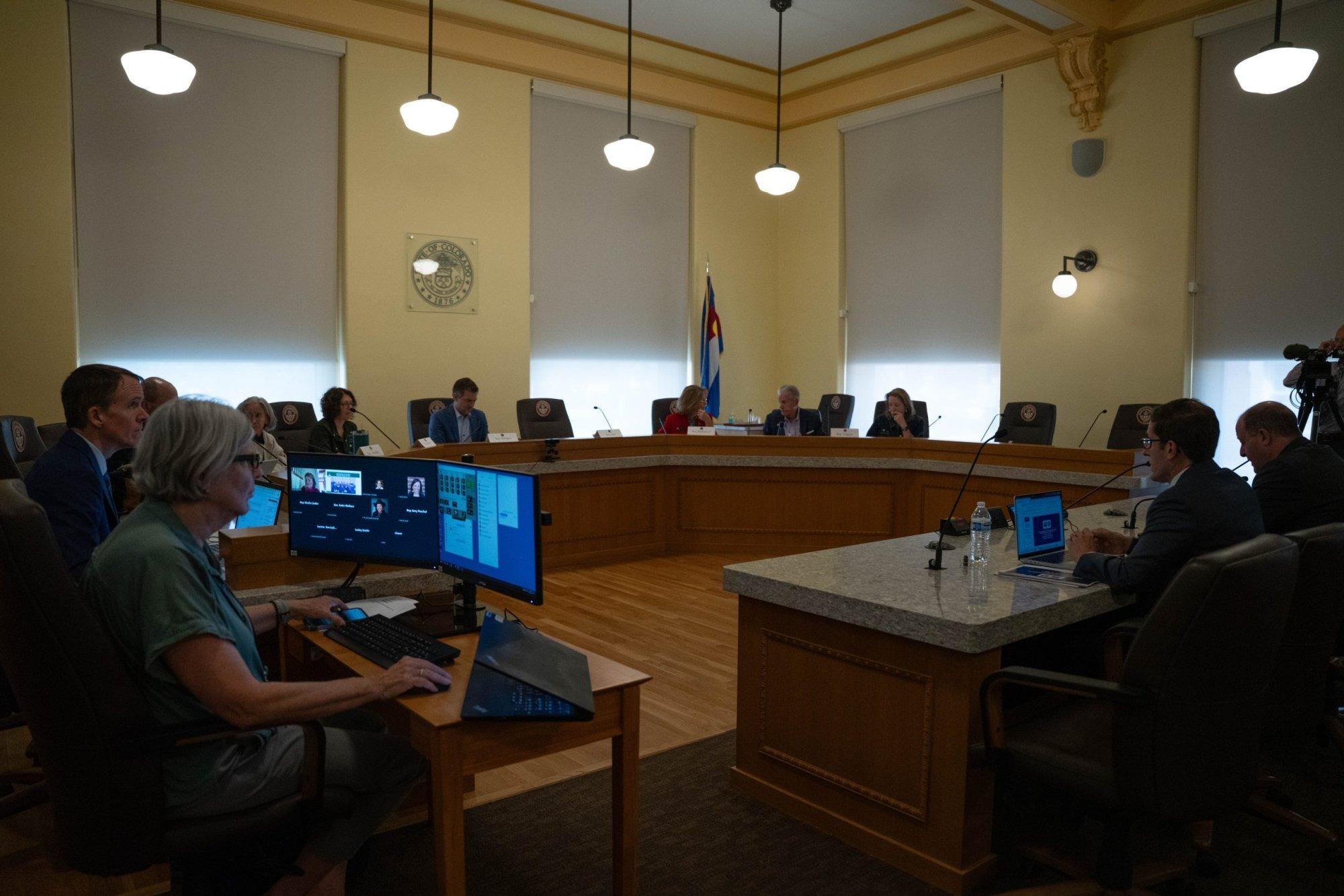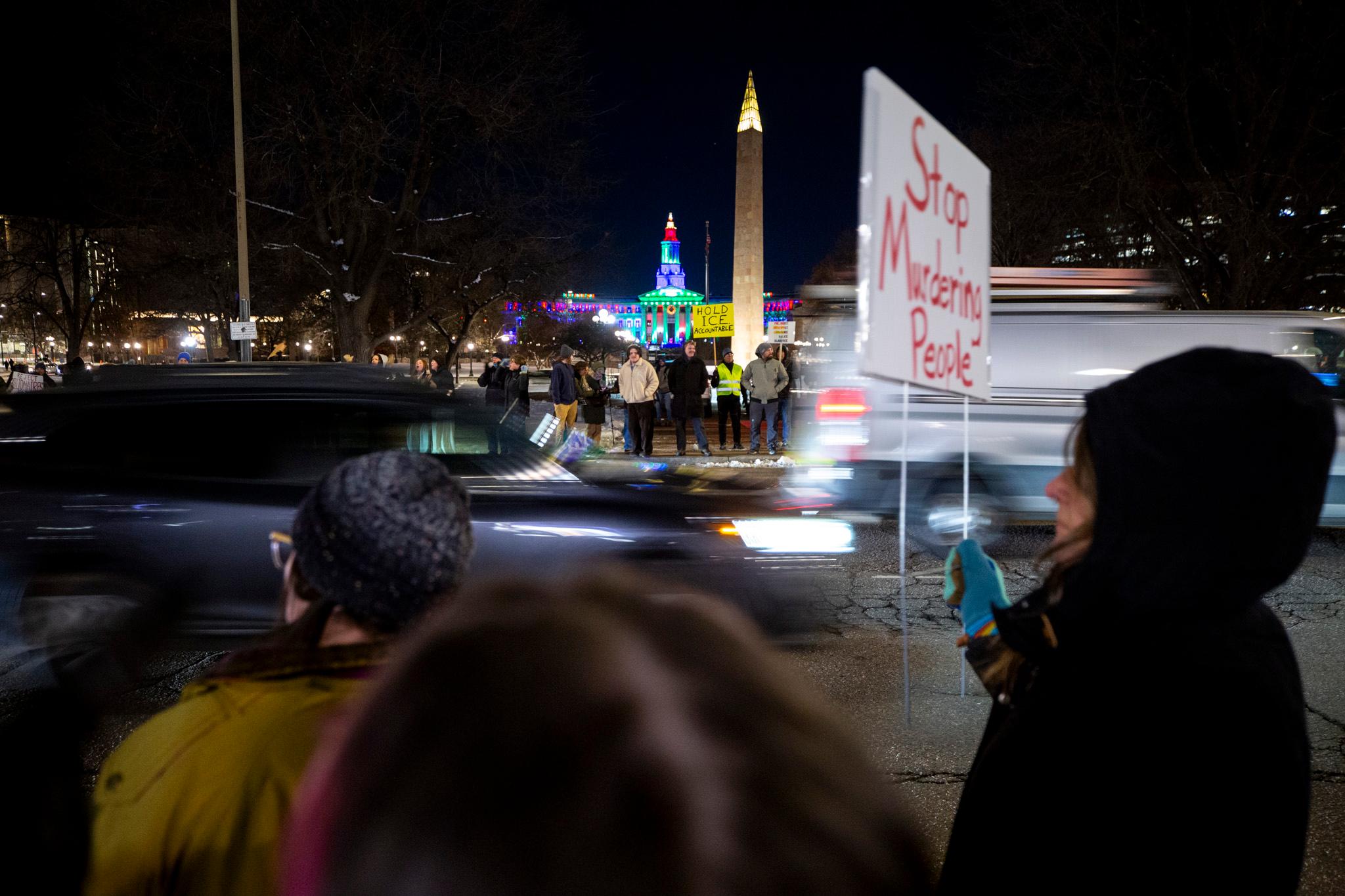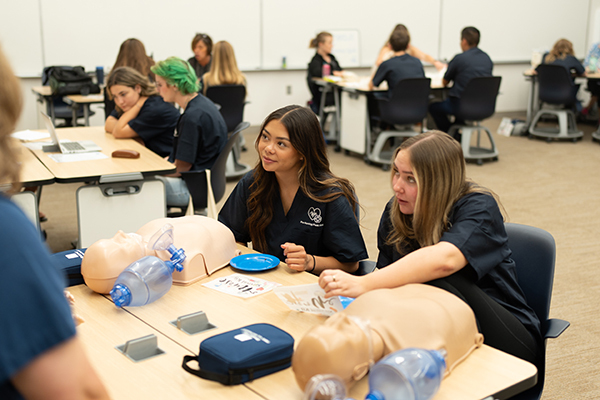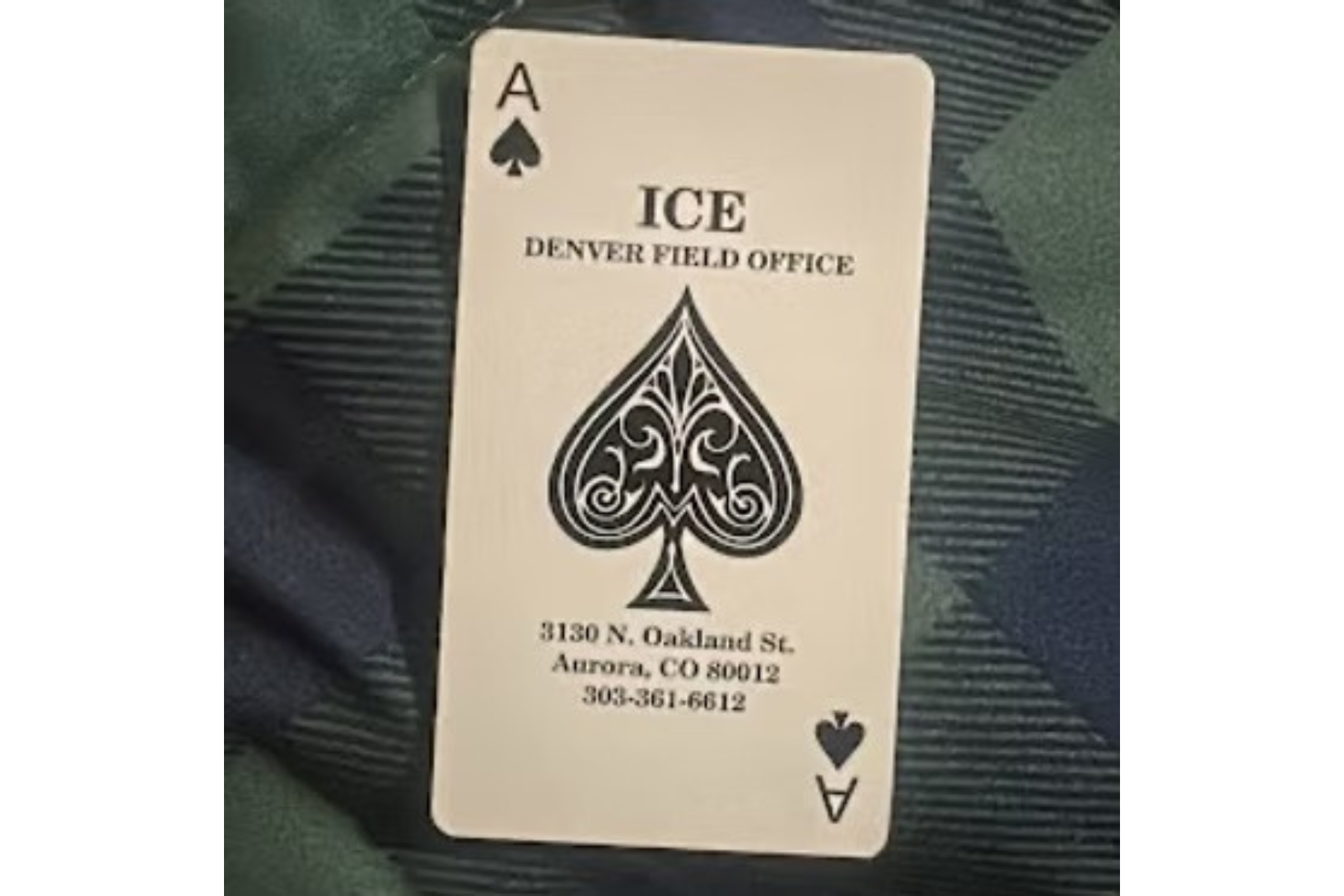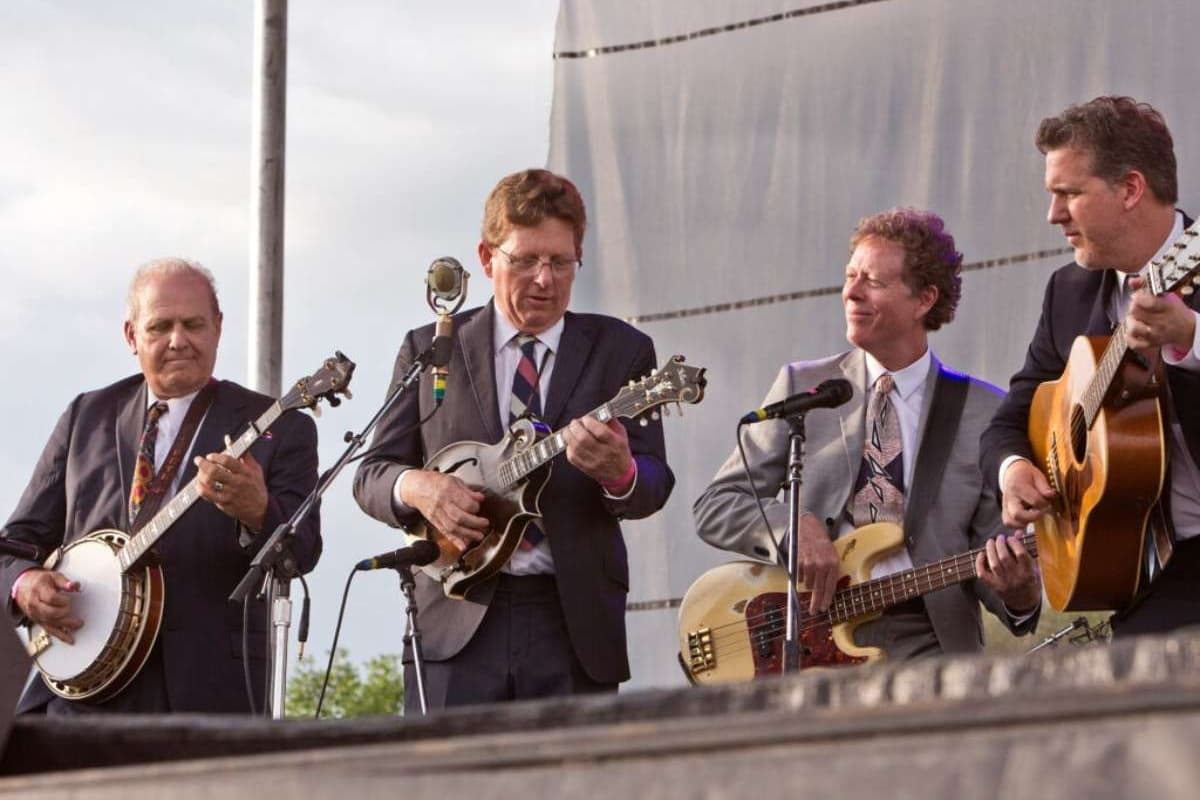
The Bluegrass Music Hall of Fame opened in Owensboro, Ky., in 1991. Since its founding, musicians from 20 states, plus Washington, D.C., have been inducted. But the inductees have largely been from the Appalachian region, where bluegrass was born.
This year, the Hall is honoring its inaugural Colorado inductee — Boulder-based band, Hot Rize.
Hot Rize formed in 1978, producing and performing original music and Bluegrass standards for 12 years. Though the band formally dissolved in 1990, the original members — Tim O'Brien on mandolin and fiddle, Pete Wernick on banjo, Charles Sawtelle on guitar and Nick Forster on bass — played reunion shows together until 1998.
The band’s most recent performance was at the RockyGrass festival in Lyons, Colo., in 2022.
Hot Rize will reunite for a live performance at the induction ceremony in Kentucky on September 18.
Other 2025 inductees to the Bluegrass Music Hall of Fame include Los Angeles band The Bluegrass Cardinals, who are credited for being the first band to record a cappella bluegrass gospel, and Arnold Shultz, who is remembered as a major influence in the development of "thumb-style" guitar picking.
We spoke with Pete Wernick, banjo player for Hot Rize, to learn about the band’s journey to fame and what the honor means after decades of hard work.
This interview has been edited for length and clarity.
CPR News: Congratulations, this is an exciting honor.
Pete Wernick: It sure is.
I've been into bluegrass since I was a teenager. That was 65 years ago. All that time I've been into bluegrass. So having hit the highest honor possible for a bluegrass person, I'm just amazed and very gratified, of course. It's just, I feel very fortunate.
CPR News: How did you all find each other and decide to start the band?
Wernick: I moved out here [to Colorado] at the age of 30, in 1976. I was working my way toward a doctorate in sociology, which I received at Cornell University, but I had a bluegrass band on the side and we were starting to make records. Then my wife and I, Joan, decided we were not going to live in Ithaca, New York, for the rest of our lives. So we chose Colorado, which is where she had grown up.
When we first came out, just to scope the place out, I was interested in seeing if there was enough of a music scene in this area. I didn't know if it would be that bluegrass-friendly, but I right away discovered the Denver Folklore Center. The Folklore Center was a real hub for music — people playing folk music and bluegrass and all kinds of things. And that's where I met all the people who later became members of Hot Rize.
CPR News: Where does the name “Hot Rize” come from?
Wernick: Hot Rize got its name from Martha White Flour, which has a secret ingredient that they call “Hot Rize.” It makes the biscuits rise in the oven while they're baking.
“Hot Rize” was part of a jingle that was sung by Flatt and Scruggs; they sang it at a Carnegie Hall concert in 1962, which I attended. It said, “Martha White self-rising flour’s got Hot Rize.”
I thought that would be a nice name for a group. And we got permission from Martha White Flour to use the name. Their one stipulation was we had to keep the show clean, which was not a problem.
CPR News: How did everything unfold?
The original Hot Rize that most people know was the four of us: Tim O'Brien, and me, and Charles Sawtelle on guitar, and Nick Forster. The four of us were full-time, 12 years. We went to other continents and left a mark. We got to be on the Grand Ole Opry, Austin City Limits, Prairie Home Companion, and so on. And we just worked as hard as we could to be popular.
We were all very ambitious. So we really worked hard as a team to just do everything that would take to be successful, including listening in a critical way to our recordings of our shows and actually even telling each other things that would be better if they would do it this way instead of that way. And we worked as a democracy really. There was no one person in charge.
CPR News: New York isn’t known for its bluegrass scene. How did you first get into the genre?
I heard bluegrass thanks to the folk music movement that was going in the early ‘60s. Flatt and Scruggs was a really important band. Earl Scruggs, the banjo player, played a style of banjo that was just amazing and electrifying to hear. A lot of people who are banjo players like myself can remember the very first time they heard it because it was such an amazing thing.
I was at a friend's house and he says, “You like banjo. Listen to this guy.” And he puts on a record of Flatt and Scruggs.
So that's what brought me in.
CPR News: What about the band-within-the-band?
We had a fun part of our show, was when we went into another set of clothes and came out purporting to be an old-time honky tonk band from the 1950s called “Red Knuckles and the Trailblazers.” And a lot of people became very fond of those guys because not only were they really pretty good musicians, playing all the different instruments that are not bluegrass instruments, but they were sort of comical and did dance steps and satirical things.
Changing into this other band was kind of a winning combination for our performances. And we did that everywhere we played. The fact that we could be two bands in one definitely helped our career.
People have been asking if Red Knuckles and the Trailblazers are going to show up at the induction and we'll see about that. Could happen. You never know.
CPR News: Any closing thoughts?
I hope Coloradans are proud of us, because we definitely associate ourselves with Colorado. That was where we started and got a lot of support. Things like the Telluride Festival and the RockyGrass Festival, they were an important part of getting us on the map. And Colorado bluegrass is now respected all over the place, thanks to not just us, but a lot of the great groups that have come since us. So I hope Coloradans are proud of our bluegrass.

